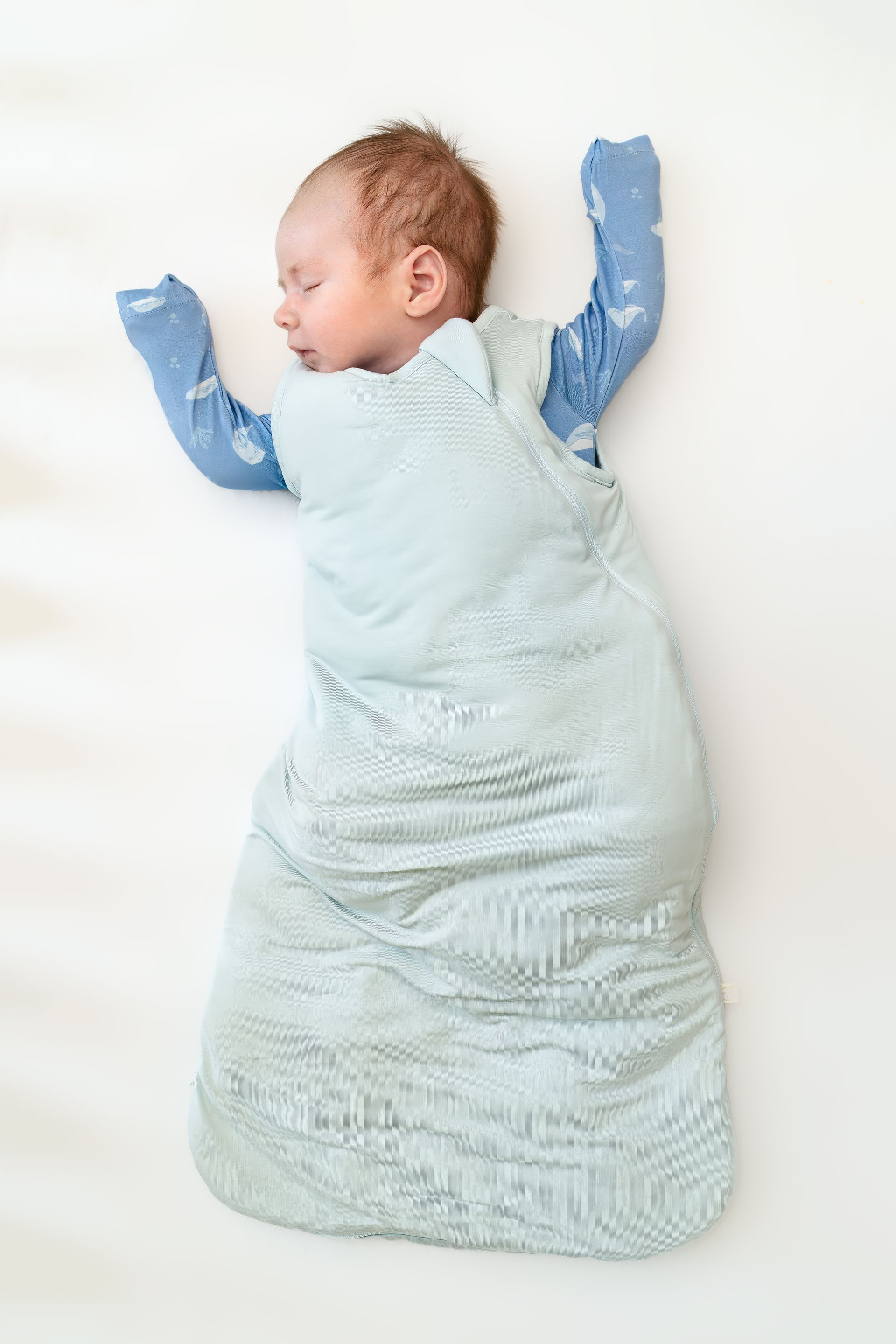Figuring out Sleep for a Newborn
A sleep survival guide to the first few weeks of your infant’s life
Written by: Lamis Benjelloun
Do you ever feel like the person who coined “sleep like a baby” probably never got to spend time with a baby? I mean, seriously, moms of newborns KNOW that babies never sleep, especially at night.
You’d be surprised, or not, to know that newborns do actually sleep a lot. Their sleep needs are high (Did someone say 17 hours of sleep?) and their reliance on their mother is big. In fact, the first three to four months of a baby’s life are known as the fourth trimester and sleep is very unorganized during that time.
Oftentimes, newborns sleep a lot during the day, leaving them awake much of the night. This is known as Day/Night Confusion. Another newborn experience that makes sleep difficult is colic. These two topics are covered in separate blog posts as linked.
Focus on awake times instead…
Newborn sleep is not governed by your regular 24 hour clock. Their circadian rhythms are immature and their sleep cycles are bi-phasic, unlike those of an adult. This means that for half the time they are asleep, they are in light active sleep and for the other half, they are in deep sleep. What does that look like for us? This is the main culprit behind baby waking up as soon as we try to lay him in their crib after he has fallen asleep in our arms. This is also the reason newborns make so many noises in their sleep.
Simply put, we know that sleep is messy during the first few weeks of a baby’s life: this translates into irregular sleep periods as well as inability to fall asleep on their own. When we realize this, we can begin to take a load off the parents shoulders and instead of focusing on how long the sleep is or how baby fell asleep, we can focus on offering sleep every 45-60 minutes, even if assisted (by mom or a rocking chair or what have you). Babies have a short capacity to stay awake and when we offer sleep at short intervals, we allow them to relieve the sleep pressure thereby preventing them from getting overtired. If you have at all struggled with your child’s sleep, you know that overtired is the enemy: it is the way to make sure that baby will have an even harder time falling asleep.
When baby smiles…
The first real sleep milestone happens when baby reaches around 6 to 8 weeks. Your child is now more aware of her surrounding and this period is marked by her ability to smile “on purpose”. When you show up, baby can now look at you and smile, showing that he recognized you and is happy to see you. At this point, you will find that it becomes ever so important to dedicate a consistent sleep space that’s dark cool and quiet as much as possible to avoid distractions at nap and bedtime. Baby also naturally starts needing an earlier bedtime and you will find that they are more capable of longer stretches of sleep during the first half of the night.
If self-settling is a skill you would like your baby to acquire gently , you can start practicing it as early as this stage. Lay baby drowsy but awake in her crib for her first nap of the day and see if she will fall asleep. If she fusses at all, pick her up and help her fall asleep in whatever way you choose. You can try again tomorrow if you wish: afterall, practice makes perfect!
Tools to help…
Before I sign off here, I want to leave you with two tools that can help you set the stage for healthy sleep habits:
- Diversifying soothing methods: When possible, try to avoid relying on just one way to soothe baby. I know its tempting to stick to the formula that works but when you difersify how you soothe your baby and even who soothes your baby, there is a lower probability that a certain action or person will be associated to falling asleep.
- EAT/PLAY/SLEEP: A newborn mama’s day is a very unstructured and hard to plan. Having said that, it helps to plan to feed baby as soon as they wake up instead of right before sleep. This way, there is always an activity right before bed that does not involve breastfeeding or a bottle. Tracy Hogg introduces the concept of EASY in Secrets of The Baby Whisperer through which she encourages parents to always have an activity between feeding and sleeping. Of course, during the first few weeks of baby’s life, that activity will just be changing a diaper or putting PJ’s on: it might not necessarily be a play or physical activity.
- Stop, wait and listen: Since infants spend a significant amount of type in active sleep, they may move, make sounds and cry in their sleep. So before you jump in and scoop them out of their crib at the first whimper you hear, I want you to stop. Take a minute and listen: Is baby really awake or are they just making sleep sounds?
Life with a newborn is amazing but can be a time of total chaos and confusion. So instead of worrying about whether your baby is sleeping enough focus on recovering, bonding with your baby and offering them sleep often (every hour for example). And remember to enjoy it, seasons change quickly for infants and what seems so difficult today will be a distant memory sooner than you think!





